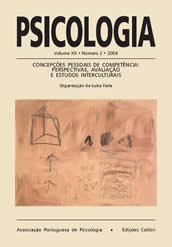Psychosocial regulation in the organization of intelligence beliefs: relations between social representations of intelligence and personal conceptions of intelligence
DOI:
https://doi.org/10.17575/rpsicol.v20i2.391Keywords:
-Abstract
In the present work we analyse the processes that regulate the organization of beliefs about intelligence in adolescents, namely the influence of the “familiarity” with the object of the representation. Results show that subjects for whom intelligence is an unfamiliar topic explain it in a biological way and represent it as a natural gift. We also research the relations among the “familiarity” principle, the social representations of intelligence, and the personal conceptions of intelligence. Results predict negatively static conceptions and positively dynamic conceptions. We also find that a belief in the “natural inequality” of intelligence is a hegemonic lay theory, shared both by static and dynamic subjects.


